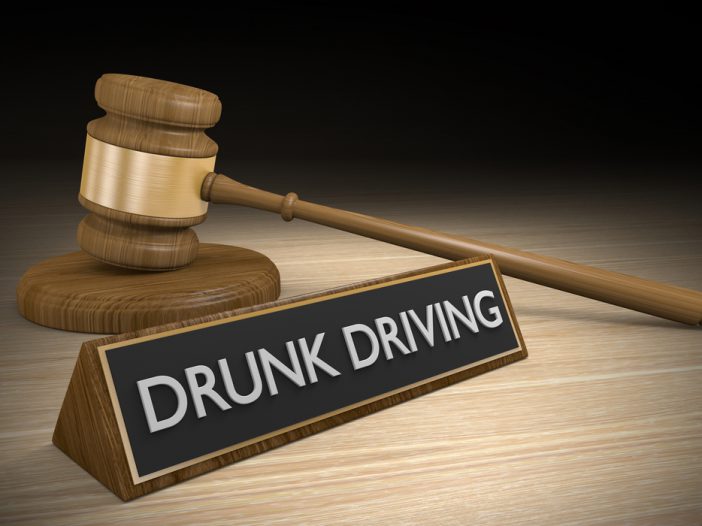If you’ve recently been arrested and saw the words DWI B charge listed on your paperwork, you’re probably trying to figure out what it means and more importantly, what it could mean for your future. It’s natural to feel overwhelmed. After all, most people don’t expect a night out or a wrong decision to lead to a criminal charge. The term “DWI B charge” may sound vague or bureaucratic, but it’s one of the most common and misunderstood charges in the Texas legal system.
In this article, we’re diving deep into what a DWI B charge actually is, how the law treats it, and what people often get wrong about it. Through real examples, myth-busting insights, and clear, conversational explanations, we’re going to demystify this legal term and help you understand what really happens when you’re facing a Class B DWI charge in Texas.

What Does a DWI B Charge Mean?
First things first—let’s break down what the “B” in DWI B charge means. In Texas, criminal offenses are classified by their severity. A Class B misdemeanor sits right in the middle of the criminal ladder: more serious than a ticket, but less serious than a felony.
A DWI B charge means you’re facing a Class B misdemeanor for Driving While Intoxicated. This is usually the charge for a first-time DWI offense where your blood alcohol concentration (BAC) was under 0.15%. If your BAC was 0.08% or higher but under 0.15%, and there were no aggravating factors like an open container or a crash, it’s likely you’ll be charged at this level.
This is the most common DWI charge issued in Texas, but many people don’t understand what it really entails—or what options they might have.
Real-Life Example: What a Class B DWI Looks Like
Take Amanda. She’s a 34-year-old teacher from Round Rock, Texas. After happy hour with coworkers, she drove home thinking she was fine. A traffic stop for a broken taillight turned into a full-blown DWI arrest after a breath test showed a BAC of 0.10%. Her paperwork listed a DWI B charge a term she’d never heard before.
Amanda was terrified. She pictured jail time, losing her job, and never driving again. But what she didn’t realize is that many first-time offenders have options and that her situation wasn’t as hopeless as it seemed.
Common Misconception #1: A DWI B Charge Means Automatic Jail Time
This is probably the biggest myth about a DWI B charge. Yes, jail is possible. Under Texas law, a Class B DWI comes with a possible sentence of 72 hours to 180 days in county jail. But that doesn’t mean every person arrested actually ends up behind bars. In fact, jail time is often used as a last resort, especially when the defendant has no prior criminal history.
In fact, many first-time offenders never serve jail time at all. Instead, they may receive:
- Probation
- Deferred adjudication (in certain counties)
- Alcohol education programs
- Community service
Judges often take your record, attitude, and willingness to comply with court orders into account. Hiring the right DWI attorney can also be a game-changer. They can negotiate with the prosecutor, request alternatives to jail, and sometimes even get the charge reduced or dismissed. A skilled lawyer can often turn a harsh outcome into something far more manageable.

Common Misconception #2: If It’s Your First Offense, You Don’t Need a Lawyer
Here’s the truth: even a DWI B charge on a clean record can carry long-term consequences. A conviction could lead to:
- A permanent criminal record
- License suspension
- Higher insurance premiums
- Problems with employment, especially if your job involves driving or background checks
Many people believe they can “just plead guilty and move on.” But the decision to plead should never be made without understanding the ripple effect. A good attorney can challenge the traffic stop, breath test, and even how the evidence was handled. Even if you think the evidence is stacked against you, a skilled lawyer may uncover errors you didn’t know existed.
Let’s go back to Amanda. She thought about going with the court-appointed attorney but decided to consult a local DWI lawyer. That lawyer found that the officer had no dashcam footage of the sobriety test, and there were inconsistencies in the police report. Her case was later reduced to an obstruction of a passageway a Class C ticket. That reduction made it possible for her to keep her job and later seal her record.
Common Misconception #3: A DWI B Charge Will Eventually Disappear from Your Record
A lot of people believe that a DWI B charge will simply “drop off” their record over time. Unfortunately, that’s not how Texas law works. Unless the case is dismissed, reduced to a non-DWI offense, or you qualify for non-disclosure later on, the charge stays on your criminal history permanently. Background checks will continue to flag it unless legal steps are taken to remove it.
In some cases, you can request an order of non-disclosure, but only if:
- You received and completed a deferred adjudication
- You meet other eligibility requirements
- You wait the required time period before applying (usually two years)
Expungement is even harder to get it’s typically only available if your case was dismissed, you were found not guilty, or your arrest never led to charges. That’s why it’s so important to build a strong defense from day one and aim for an outcome that keeps sealing or expunction options on the table.
This is why it’s crucial to fight a DWI B charge smartly from the beginning. The early stages of your case are your best chance to secure a result that won’t follow you for the rest of your life.
Common Misconception #4: You Can’t Drive While the Case Is Pending
This one’s only partially true. If your license was taken at the time of arrest, you likely received a temporary driving permit. You have 15 days from the date of arrest to request an ALR (Administrative License Revocation) hearing to contest the suspension. Missing that deadline means you’ll lose your license automatically.
If you miss that window, your license will be automatically suspended. But even then, you might still qualify for an occupational license, which allows you to drive to work, school, and essential tasks. These limited licenses are often granted as long as you follow the process and meet eligibility rules.
A DWI attorney can help file the paperwork and represent you in the ALR hearing. Many people assume they’ll be completely stuck without transportation but in Texas, there are usually options to keep you on the road. With help from a lawyer, the transition can be smoother than you think.

Common Misconception #5: You Can’t Win a DWI B Case
This is one of the most damaging myths out there. Many people assume a DWI B charge is a lost cause, especially if they failed a breath test or didn’t perform well on field sobriety tests. But the truth is that every case has vulnerabilities.
Here are just a few of the defense strategies attorneys use:
- Questioning the traffic stop (was there reasonable suspicion?)
- Challenging breath test results (machines are not always calibrated or used correctly)
- Highlighting medical conditions (acid reflux, diabetes, etc., can affect breathalyzer readings)
- Attacking field sobriety test results (was the lighting poor? Was the road uneven?)
Prosecutors must prove beyond a reasonable doubt that you were intoxicated—and that your rights weren’t violated in the process. Many cases fall apart under scrutiny, especially with experienced legal defense.
What Are the Real Penalties for a DWI B Charge?
Let’s look at the actual consequences someone might face if convicted of a DWI B charge:
- Class B misdemeanor conviction
- Up to 180 days in jail (minimum 72 hours)
- Up to $2,000 in fines
- License suspension from 90 days to one year
- Ignition interlock (if BAC was 0.15 or if ordered by the court)
- DWI education course required
- Annual surcharge (previously required, now eliminated—but some fees still apply)
On top of that, you’ll face non-criminal consequences like:
- Increased insurance costs
- Limited job prospects, especially in transportation or education
- Public record, searchable by employers and the public

Real-Life Scenario: How a Class B DWI Almost Cost Carlos His Career
Carlos, a delivery driver from San Antonio, was arrested for a DWI B charge after leaving a Spurs game. He blew a 0.11% on the breath test. He panicked, especially since his employer ran annual background checks.
Carlos hired a DWI defense attorney within 48 hours. The lawyer fought to keep the ALR hearing from suspending his license and negotiated with the DA for a deferred adjudication. Carlos completed his probation, kept his job, and later sealed the case from public view. Without legal help, he would’ve faced a mandatory suspension and likely lost his livelihood.
Final Thoughts on the DWI B Charge in Texas
So, what’s the takeaway? A DWI B charge may sound straightforward, but it’s often misunderstood. Many people assume it means automatic jail time or that there’s no way out—but in reality, most first-time DWI cases have more room for negotiation and defense than people think.
The key is to act quickly, educate yourself, and work with an attorney who knows how to handle DWI cases in Texas courts. With the right legal support, a DWI B charge doesn’t have to define your future. It’s not about walking away without consequences it’s about walking away with your rights, your record, and your future as intact as possible.


